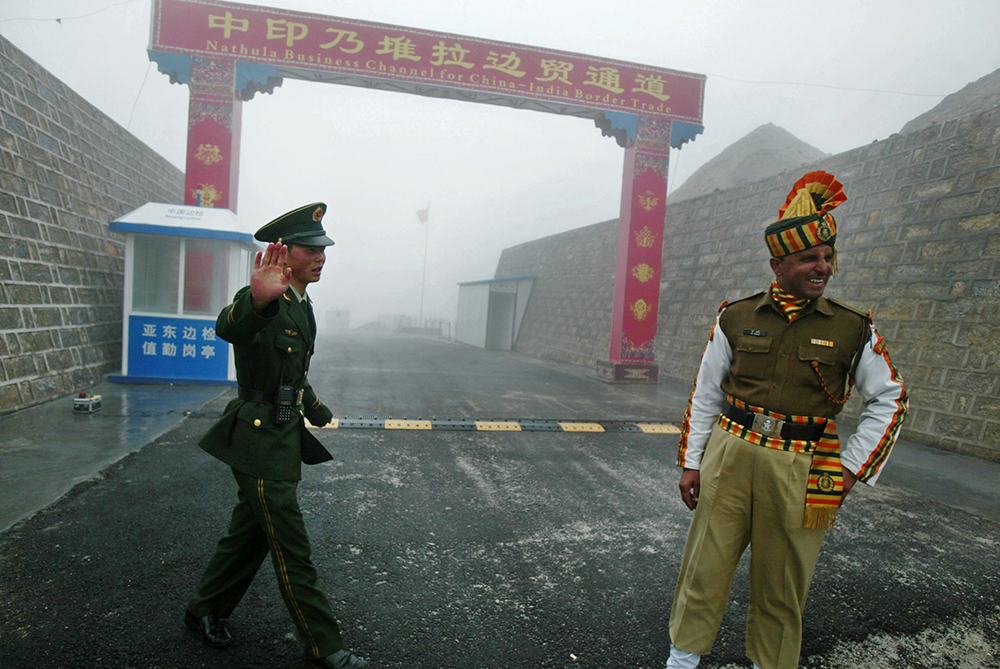India China Relations Dip: Delhi 'Expels' Scribes, Beijing Warns Of 'Serious Consequences'

NEW DELHI: India China relations have been steadily deteriorating with no move whatsoever to stem the tide since China resisted the declaration of Jaish e Mohammed chief Masood Azhar as a terrorist and went on to block the Indian bid for membership of the Nuclear Suppliers Group after a move by New Delhi to give visas to known Chinese dissidents for a meeting at Dharamshala.
A war of words that accompanied the above, has intensified now with China using its official media to warn India of serious consequences following the expulsion of three Chinese journalists of the Xinhua News Agency. New Delhi has not extended the visas of Wu Qiang, Xinhua bureau chief in Delhi and Tang Lu, chief correspondent at the Mumbai bureau and a Xinhua reporter. No official reason was given for this although source based reports in sections of the media claimed that the journalists were alleged to have extended the scope of their work by meeting Tibetan activists at Dharamshala. The other charge was that they conducted interviews under fake names.
Although this still remains in the scope of speculation, the decision not to extend the visas is being interpreted as part of the ongoing tensions between New Delhi and Beijing, more so as there have been no diplomatic conciliatory moves since.
China’s official media the Global Times, has warned now of “serious consequences” in an editorial. Lü Pengfei, former India-based special correspondent with the Global Times, said there is absolutely no need for Chinese journalists in India to conduct interviews under fake names and it is completely normal for reporters to request interviews with the Dalai Lama group.
The editorial went on to say, “If New Delhi is really taking revenge due to the NSG membership issue, there will be serious consequences.”
It further added, “In any case, it's not a good thing that India has turned down Chinese reporters' applications for new visas. The act has sent negative messages and media communications between China and India will inevitably be negatively impacted.”
“ India has a suspicious mind. No matter whether Chinese reporters apply for a long-term or a temporary journalist visa, they will come across many troubles. Complaints about difficulties of acquiring an Indian visa have also been heard from other Chinese who deal with India. In contrast, it's much easier for Indians to get a Chinese visa.”
The article carried a veiled threat in its reference to the “by and large tranquil border” between the two countries and the “steadily booming trade” and the subsequent warning, “but problems emerge when it comes to issues that the two are at odds.” And made it clear that the time had come for China to restrict visas to Indians as well.
The editorial stated, “Indian society in recent years has witnessed soaring nationalism. Crowned by Western public opinion as the world's biggest democracy, the Indians have a strong sense of pride. China should stick to a friendly strategy toward India, as we believe bilateral friendship is in the interests of India as well. On the visa issue this time, we should take actions to display our reaction. We at least should make a few Indians feel Chinese visas are also not easy to get.”
This editorial seen as the official Chinese view, comes on the heels of another article in the Global Times reacting to Indian media reports of 100 tanks positioned near the Indo-China border. China’s official media said this report could impact adversely on Chinese investment in India. It maintained that Chinese outbound investment had increased by 58.7 per cent, with “a great number of Chinese firms, including smartphone manufacturer Xiaomi and PC computer maker Lenovo, have turned their eyes toward India.”
It went on to state, “This new wave of Chinese investment only just begins to meet India's rising import demands”. And added, “however, it is puzzling that while deploying tanks near China's border, India still strives to woo Chinese investment.” And pointed towards “investing risks” inherent in this move.
The editorial also made a dig at India’s growth claims with,“In an index on the ease of doing business, from the World Bank, India currently ranks 130 out of 189. Despite India's stated goal to rise to within the top 100 this year, the nation has its work cut out for them.
Additionally, the illiteracy rate in India remains high and continues to hinder the country's efforts to improve its productivity, adding to evidence that India can not make itself a promised land for Chinese manufacturers overnight.
Furthermore, the deploying of tanks near the Indo-China border may hit a nerve within the Chinese business community, causing investors to weigh the threat of political instability when they make investment decisions.”



